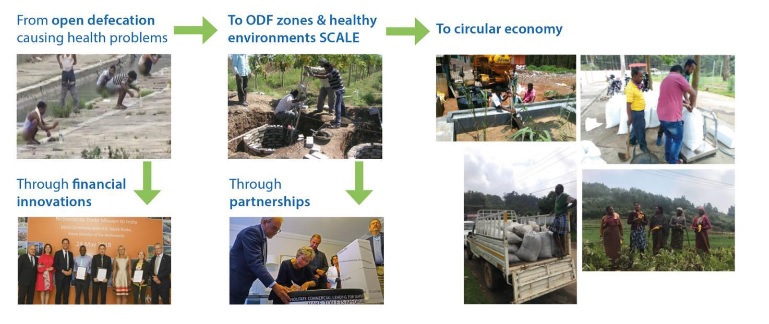‘Poo to prosperity’ may still be in its conceptual stage but if human waste is converted into co-compost by harnessing technology, it will lead to chemical-free fertiliser that will reduce carbon footprint in a large measure.
According to reliable global estimates, human waste can create 50 million tonnes of fertiliser, which would accounts for 25 percent of the current global demand.
This was the basic thrust of the virtual roundtable on ‘Faecal Sludge Management (FSM) and Circular Economy’ organised by FINISH Society on Dec 6.
Abhijit Banerji, Member Secretary, FINISH Society set the ball rolling by introducing the Society’s philosophy and goals. A host of expert panelists who shared their insights and solutions included Abhishek Chaudhuri, Managing Director, FSMC Pvt Ltd; Rajkumar Sampath Consultant FSM; Dr Kulwant Singh, CEO, 3; Anand G Iyer, Environmental Engineer & Founder The Solution Center; Dr Prashant Jha, Professor, Central University of South Bihar; and Pamela Bundi, Country Head, FINISH Mondial, Kenya.
Taking the lead, the FINISH Services Management Company (FSMC) had signed an MoU with the Dhenkanal Municipality, Odisha, to process bio-waste at the Faecal Sludge Treatment Plant and process it into NKP rich co-compost to be used as chemical-free fertiliser.
The fertiliser will be used in the farms and orchards and by tying up with farmer producer organisations to break the stigma associated with human waste.
According to Abhishek Chaudhuri, six urban local bodies in Odisha have decided in principle to sign an MOU to convert bio waste into co-compost and super compost from the dry sludge deposited at the FSTPs.
Setting the tone and tenor for the roundtable on FSM and Circular Economy, it was stated that a circular economy has benefits that are operational as well as strategic, on both a micro-and macroeconomic level.
FINISH Society in association with its partners, actively implements innovations in closing the resources loop with waste valorisations by working on all chains in solid waste, sanitation, and water management to advance towards a circular economy.
Modi supports marked linked agri sector
The Society in partnership with UNICEF is inaugurating a Faecal Sludge Treatment plant commonly known as Horizontal Constructed Wetlands (CWL) based on the flat reedbed technology in early December, in Gaya District of Bihar, India. The aim of this project is to ensure safely managed Faecal sludge in rural and urban areas of Gaya Municipal Corporation (GMC).

